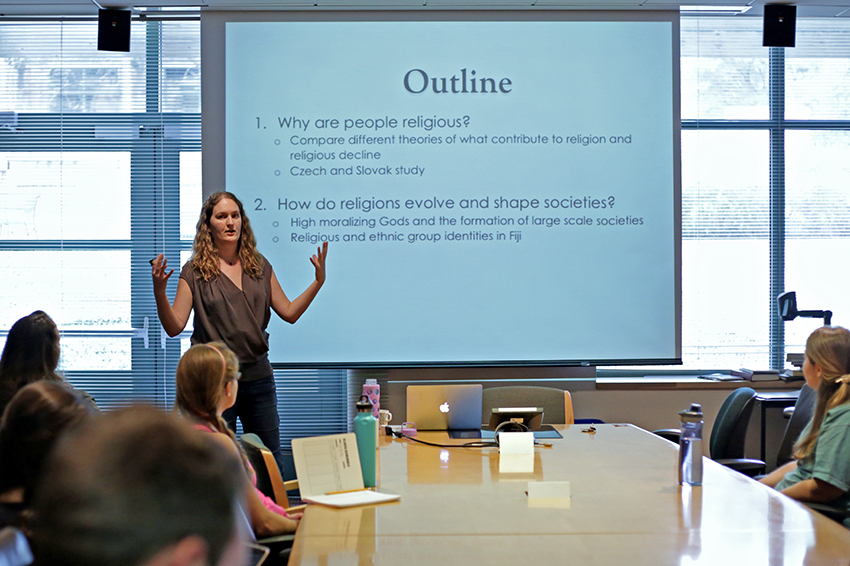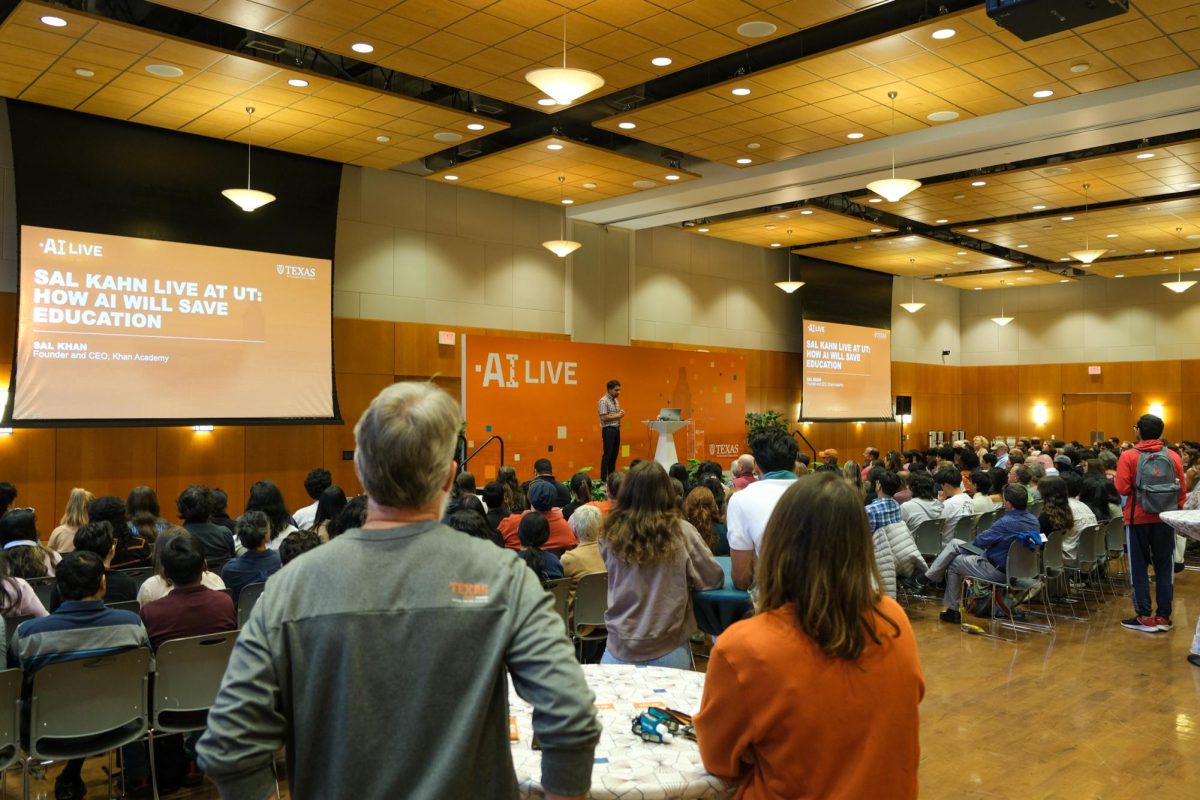Differences across cultures have an impact on the religious practices and beliefs of a society, including belief in the paranormal, according to Aiyana Willard, a UT postdoctoral fellow specializing in cognition.
Willard, who spoke on Wednesday at a lecture sponsored by Department of Psychology Cognitive Science Area, works in a cognitive research lab at UT.
Willard said studying how individuals learn the characteristics of their culture helps researchers understand how beliefs become traditions.
“(Cultural learning mechanisms) explain the variances in the world that we see today,” Willard said
Willard hosted the lecture in order to share her findings about the connections between religion and the brain.
Some of the factors that cause humans to be religious depend on the physical ways that human minds work, Willard said.
Religion, church affiliation, paranormal belief and a person’s sense of purpose in life are all connected in the brain. The ways that people think in different cultures have direct impacts on their paranormal beliefs and whether or not they believe in God, Willard said.
Willard works with the cognitive studies research lab with the goal of determining why human beings are religious and how religious institutions evolve and shape societies. However, she said that many researchers are averse to the topic, making it difficult to accomplish significant progress.
“Nobody really knows how religion affects behavior,” Willard said. “It’s a vastly understudied area.”
Although Willard’s audience was primarily cognitive science students, the subject was also appealing to others outside of UT and the science field.
Kendra Dobson, a 2012 Drexel University graduate, attended the lecture purely out of curiosity.
“I’m just interested in cognitive science,” Dobson said.
Although Dobson has no history studying cognition, she said the lecture connects to her background in screen-writing and playwriting.
“Language is a big part of cognitive science,” Dobson said. “Story and the science behind story and religion all has to do with the brain.”
Kinesiology graduate student Rexi Parcells had her own takeaway from the lecture. Parcells, who is in the process of writing her graduate thesis on cognition, said Willard’s research was a step in the right direction toward tolerance.
“Basically, if you do this research and you teach it to people, you can kind of help people understand other people’s beliefs, and why they do what they’re doing,” Parcells said. “It can help the whole world to understand each other better.”


















